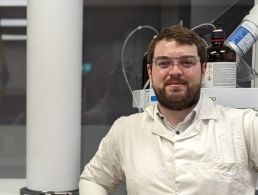Citi’s Neha Arora discusses how automation has grown and why working in this industry is never monotonous.
Neha Arora is a robotic process automation (RPA) tech lead at Citi. Her role involves understanding a variety of complex business processes and automating those processes using RPA technologies.
Automation can remove manual touchpoints and reduce cost, increase speed, accuracy and consistency, or improve quality and scalability of production. In financial services, automation can also provide extra security, especially for sensitive data.
Here, Arora tells Siliconrepublic.com a little bit more about what it’s like working in RPA.
‘Transformation and automation are keys for the survival of any business in financial services’
– NEHA ARORA
If there is such a thing, can you describe a typical day at work?
The best part of being in RPA is that no two days are similar. Automation cuts across businesses and product lines. For me to work with business and product owners and deliver maximum impact, I try to categorise my day into four broad categories.
Business process understanding and brainstorming: I spend time with new business users understanding their process and suggesting solutions on how automation technologies can make their process more efficient.
Ongoing development: Implementation of ongoing development projects and reviewing the progress to ensure we are on track for deployment.
Go-live: I focus on the release to ensure everything goes smoothly and then train business users on how to use RPA for their processes. If we have any project in [user acceptance testing], then I spend my time supporting the user testing – fixing bugs and making required enhancements.
New initiatives: Being a transformational leader, bringing new technologies into our pool, validating proofs of concept and forecasting business impact is another part of my daily work.
What types of projects do you work on?
My projects include automating securities and custody business processes such as fund accounting, creating claims, calculating tax processes, reconciling and approving trades etc. I am also involved in AI/machine learning transformation projects.
What skills do you use on a daily basis?
As an agent of transformation, I have to rely on my interpersonal skills in my interactions with both the business leaders and the development team.
My analytical skills help me formulate the business processes and problems into technical specifications for implementation.
My coding and development skills come in handy to streamline deployment.
What is the hardest part of your working day?
The toughest part of any transformation project is challenging the status quo and building buy-in of the decision makers and users who would directly benefit from the change.
In financial services, the criticality of the processes and sensitivity of data induces reluctance in the users. However, once the benefits are realised, the very same users convert to the advocates of automation
Do you have any productivity tips that help you through the working day?
Time management is key for working in such a dynamic field. Because I work on multiple projects at a time, I rely heavily on creating a to-do lists. Before my end of day, I email myself the list of tasks in order of priority and track them to completion next working day.
When you first started this job, what were you most surprised to learn was important in the role?
Transformation and automation are keys for the survival of any business in financial services, given the sheer volume of sensitive data. I was amazed at how Citi was able to build processes to keep a check on the proper functioning of the bank with so many complex manual processes.
Automation is ensuring that we are able to deliver a delightful experience to the users and customers in a profitable, hassle-free, swift and scalable manner.
Also, the kind of impact that I was able to realise through the transformation projects. Automating and simplifying the repetitive manual processes and its direct contribution to the business KPIs is unreal.
How has this role changed as this sector has grown and evolved?
With the advent of AI/machine learning, the scope of areas where transformation could play a pivotal part has expanded and the role has too along with it.
The technologies that we now offer include Xceptor for reconciliation, Appian to manage workflow and bringing in machine learning to learn from data and identify the pattern for decision making.
What do you enjoy most about the job?
I love the fact that working in the RPA team never gets monotonous. New business use cases always come with new challenges ranging from getting bot access to different applications to engaging with new teams and educating them on RPA bots and getting their buy-in.
For every use case, we need to come up with creative solutions to implement the project keeping SLAs in mind and without impacting the quality of the solution.




